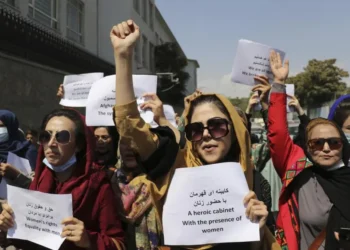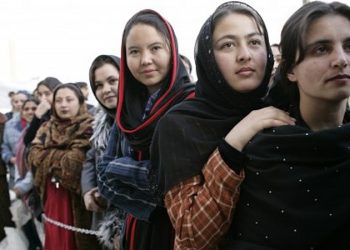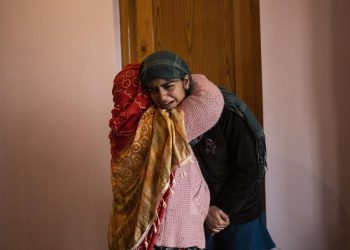Human Lives Human Rights: Back in 2001, the United States under former President George W. Bush invaded Afghanistan after the Taliban -who ran the country at the time- reportedly refused to extradite Osama bin Laden and other al-Qaeda terrorists reportedly responsible for the attack.
Soon after the declaration of war, the U.S. Air Force raided Afghanistan and ran so many carpet bombing missions that the Taliban lost control over the government.
However, it wasn’t until 8 years into the deadly war that American special forces went in and finally found Osama bin Laden, killing him and dumping his ashes into the sea as then President Barack Obama would state in a televised speech later.
But ironically, the war that started with the declared goal of removing the Taliban from power and neutering al-Qaeda would go on for 13 more years despite achieving both those goals.
While Washington always cites the successful killing of Osama bin Laden as a landmark achievement of its military and intelligence apparatus, it is reluctant to admit to the fact that the main reason for the war to drag on was in fact a failure of both intelligence organizations and the military commanders who were supposed to prevent it.
Today, the American forces are hastily leaving Afghanistan while the Taliban has once again overran Afghanistan and al-Qaeda continues to exist alongside one of its most notorious offsprings- the Islamic State or ISIS.
The vastness of Washington’s failure in its longest ever overseas war is a topic scrutinized in many articles and TV shows. So there’s no point in bringing up once again how after throwing trillions of dollars in taxpayer money to the war and losing over 2,000 military personnel, America has achieved almost nothing.
The Afghanistan that American forces are leaving behind is now facing perils even bigger in scale than the beginning of the war.
The Taliban have now become even more stronger after defeating an Afghan government that enjoyed direct military support from the U.S. and 40 other nations.
The ISIS is continuing to mount deadly attacks across the South Asian country. In its last act of terror, the group claimed responsibility over deadly bombings near Kabul’s international airport, killing at least 12 American soldiers on August 26.
Radical Islamist movements are also finding it easier to expand their reach under the Taliban, which in itself is a blown out extremist interpretation of Islam.
Worst yet, the Taliban have already made it clear that their rule won’t be one where modern day concepts such as gender equality and women’s rights exist.
The Taliban have been reassuring the world in several propaganda messages broadcast from the state TV that everyone will be given the chance to exercise their rights.
They claim that women will only be required to wear Islamic hijab and other than that, none of their rights will be limited.
But what is happening in Afghan cities today is indicative of a very different reality.
So far, many former government officials and army personnel have been publicly executed upon charges of cooperation with the American forces.
The Taliban in several cases have reportedly killed the officials and kidnapped their wives and daughters.
They have also reportedly asked people in various cities to put up signs that they have single daughters at home so members of the group can find them and marry them.
While these reports need proper validation, the Taliban’s record in abusing women’s rights is proof enough that such actions are completely expected from members of the extremist group even if they are now outlawed by the senior leaders for political purposes.
And while those investigations are being carried out and the world is looking for solutions to ensure the safety of the Afghan women and girls caught in the crossfire, the U.S. government also needs to take a deep look and find out where it went wrong.
More than 20 years and four presidents later, and after making many outrageous claims about its success in Afghanistan, America can never claim that the human rights situation in Afghanistan today is much different from 2001.
By Phil Simmons
Chief Editor


















